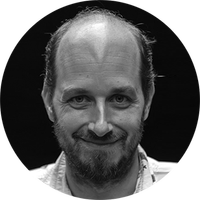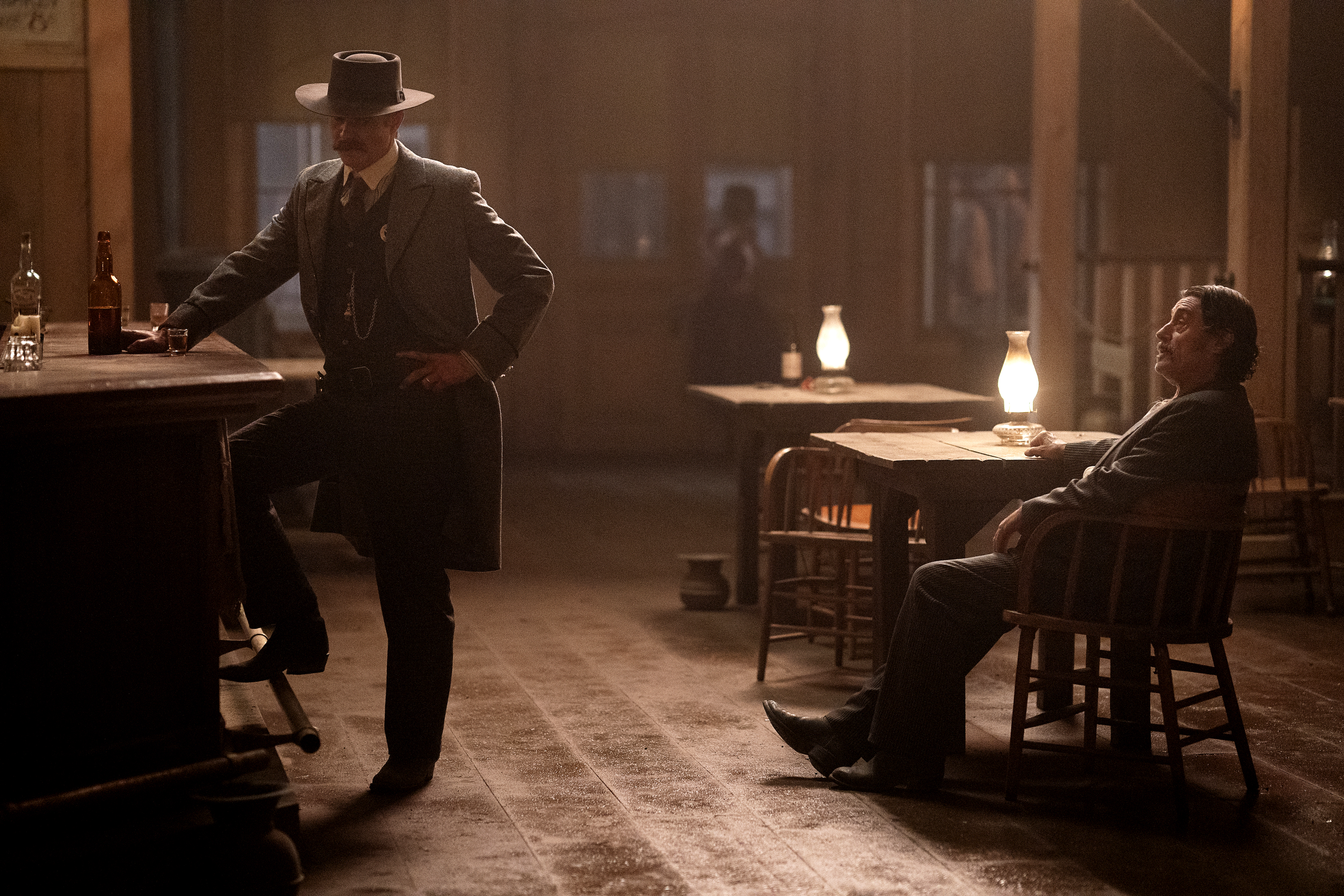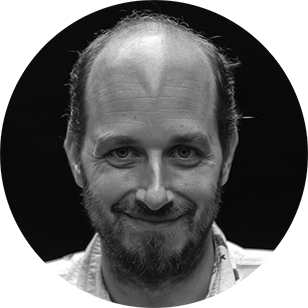The Deadwood movie shows there's still a big difference between films and prestige TV
A two-hour film, no matter how well executed, was never going to match the storytelling of the show


A free daily email with the biggest news stories of the day – and the best features from TheWeek.com
You are now subscribed
Your newsletter sign-up was successful
There were so many reasons for the Deadwood movie to be disappointing. The weight of nostalgia it carried was too heavy, the gap in time too great, the world changed too much in the interim. Even putting aside the state of his health, creator David Milch was reportedly not allowed to make the movie in the wild, last-minute way that he had made the show (writing dialogue mere hours before they were shot and making production choices based on who was around). Instead, he wrote scripts, delivered the pages to HBO for approval, and then shot them. They were good pages, as it turned out; not nearly as random as the show often was — and a lot of the beats were re-treads of season three — but I don't think anyone went away unsatisfied. I found Calamity Jane's part very moving, Swearengen and Bullock are wonderful foils for each other, and Hearst still serves as a wonderful villain. In short — once you got past how old everyone looks — it looked and sounded and felt exactly the way that Deadwood feels.
Yet can we ever return to a western like Deadwood? In a sense, we didn't. I'm pretty sure that the real ending was always to have been the fire that really did burn down the town in 1879, and which the three seasons of the show heavily foreshadowed. We'll never get that ending. If David Milch had planned in 2003 to build to a fiery climax, what we got instead was a family reunion, a revival, a classic album re-recorded by the band's surviving members. It was good for what it was, but that's what it was. And I don't want to come off as critical of what was, at its heart, a curtain call. But the reason a two-hour "movie" could only be disappointing is that Deadwood was a television show — delivered in 12-episode seasons — and this was a movie, a fundamentally different thing.
When it comes to westerns, the difference matters. Especially in the streaming era, the words "television" and "movie" have gotten disconnected from their origins; no one watched the Deadwood "movie" in movie theaters (and the old "television" show lives in the same HBO app, on the same computer, as I watched the movie). But television Westerns are all about the gap between one event and the next — and the random vagaries of life that get lived in the interval — while it's film Westerns that tell the Big Stories about History, epics about Beginnings and Endings and Grand Historical Transitions (with plenty of capital letters), with ordinary people getting swept by the tides of modernity and progress.
The Week
Escape your echo chamber. Get the facts behind the news, plus analysis from multiple perspectives.

Sign up for The Week's Free Newsletters
From our morning news briefing to a weekly Good News Newsletter, get the best of The Week delivered directly to your inbox.
From our morning news briefing to a weekly Good News Newsletter, get the best of The Week delivered directly to your inbox.
Deadwood the television show was the former; Deadwood the movie was the latter.
There are exceptions to this rule, of course. But the most enduring television Westerns tend to stay in one place — as Deadwood did — and play out an ever-renewing series of stories on that same stage, with the same characters. Budget considerations are part of it, since, having built a set, television studios would have a built-in financial interest in re-using it. But there's also something about the structure of the medium: after radio gave way to television, shows like Gunsmoke, Rawhide, Bonanza, Wagon Train, and Maverick proved to be sprawling, multi-year exercises in continuity that went on and on (and on), year after year after year. Such shows didn't tell stories so much as build a world and stay there; part of the charm of television westerns is that they never really changed (and part of their reassuring subtext).
By contrast, the classic Western movies are all about change, big endings and grand historical transitions. The winning (or losing) of the West, the passing away of The Old, and the beginning of The New, usually signaled by the arrival of the railroad or the telegraph or telephone. The big screen is better suited for Big Stories, I suppose — the vast epic scenery of Monument Valley, for example, shows better in a movie theater than anything but the very biggest of big-screen TVs — but movies also tend to tell stand-alone just-so stories about the American West. In The Man Who Shot Liberty Valance or My Darling Clementine, John Ford mythologizes the coming of law and order; in Red River and The Searchers, we see gun-toting cowboys give way to farms and ranchers; Dances With Wolves and Cheyenne Autumn chronicle native genocide; and in "revisionist" Westerns like The Wild Bunch or Butch Cassidy and the Sundance Kid, we see the West come to an end (and the outlaw become impossible).
Deadwood was always a TV show. It had the perspective of a television set, claustrophobic and cramped, with never a vista or horizon in sight. (Indeed, in retrospect, it's shocking how rarely anything happened on the show that wasn't within earshot of the Gem, or within view of his rooftop balcony). The camera tended to shoot low to the horizon, giving you a generous view of muddy ground and crowded streets, with at most a little sun peaking in around the edges. Not many wagon trains, more close-quarter knifings than gunfights, little gold, fewer cattle, and no trace of mythology or romanticism.
A free daily email with the biggest news stories of the day – and the best features from TheWeek.com
If it felt like something was missing from the Deadwood movie, then, it might be because it was doing film western, taking a big swing at big changes. Hearst heralds modernity with his telephone poles and his demands that Swearengen "join the future" — to which Swearengen responds by dying — and a wave of weddings and funerals serve as overt invocations of the irrevocable passing of time. More to the point, almost every character's story reaches a climax of one sort or another: Jane gets redemption — and she and Joanie ride off into their Parisian sunset — Sol and Trixie have a child and marry, Farnum finally contributes to Hearst's downfall, Alma and Seth re-connect, Seth proclaims that he's home, and Al dies (or is about to). The stories in the show had a way of branching and overlapping with a messy fecundity; the stories in the movie move crisply and quickly, and all end in punctuation marks.
This is not a criticism, again: if the problem with the movie is that it's was a movie, not a show, we can hardly blame Milch and company for making a movie. But it's why I felt disappointed watching a Deadwood movie that lacked the sense of time that the show always seemed to have, endlessly suspended between the genocidal removal of the Lakota Sioux and the coming of South Dakota statehood; the more things changed in the show, the more they stayed the same. This was its charm: Deadwood filled our screens with mud because the real business of the town was the stories not worthy mythologizing, stories like the gambler turned plague victim turned preacher, the drug-addicted banker, and any number of sordid and depressing pimp-and-prostitute tragedies. The movie didn't have room for all the random and unnecessary character details the show gave us — from the cook who worships a dead buffalo to the racial politics of the livery business or the story of a bartender and would-be sheriff who really just wanted to be a fireman — and this made it a good movie, I have to admit. But I can't help but miss the show.
Aaron Bady is a founding editor at Popula. He was an editor at The New Inquiry and his writing has appeared in The New Yorker, The New Republic, The Nation, Pacific Standard, The Los Angeles Review of Books, and elsewhere. He lives in Oakland, California.
-
 Political cartoons for February 15
Political cartoons for February 15Cartoons Sunday's political cartoons include political ventriloquism, Europe in the middle, and more
-
 The broken water companies failing England and Wales
The broken water companies failing England and WalesExplainer With rising bills, deteriorating river health and a lack of investment, regulators face an uphill battle to stabilise the industry
-
 A thrilling foodie city in northern Japan
A thrilling foodie city in northern JapanThe Week Recommends The food scene here is ‘unspoilt’ and ‘fun’
